In this article you will be reading about English grammar. So, I will explain the most common grammar mistakes in IELTS writing and speaking. Yes, it is important; it raises 25 percent of your IELTS writing and speaking scores. I’ve selected five of the most common grammatical mistakes students make, and I will tell you what they are and how to avoid them.
5 Common Grammar Mistakes in IELTS Writing and Speaking
- Past Simple or Present Perfect
- Conditionals
- Subject-Verb Agreement
- Word Order
- Articles
Mistake 1: Past Simple or Present Perfect
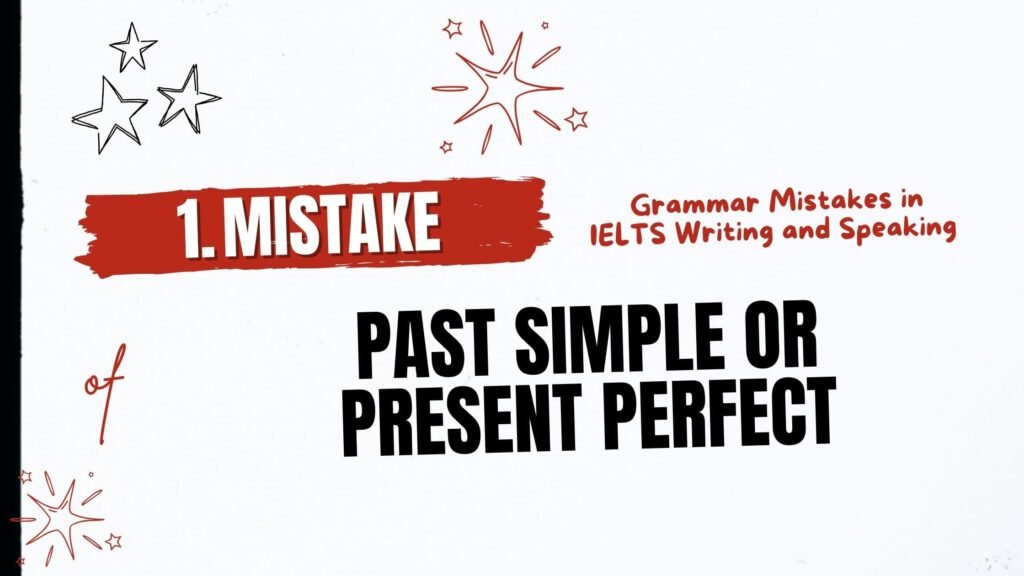
Have a look at these two examples and think about what tenses would you use in each of them:
- Over the last 20 years, the number of students studying at University hm-hmm used to increase.
- 20 years ago, fewer high school graduates hm-hmm years about to go to study at university.

So which tense would you use in each sentence?
The answer is:
- The first one is present perfect, “Over the last 20 years, the number of students has increased.”.
- The second one is the past simple, “20 years ago, fewer high school graduates went on to study at university.”

Here are some simple English Grammar rules for you:
- Use the present perfect to talk about the time that started in the past but continues until the present. Maybe something happened in the past, but the result is in the present. For example, “I have lived in London for over eight years, so I am still in London; the result is in the present.”
- Use the past simple to talk about the action that finished in the past. For example, “I moved to the UK to pursue my master’s degree in 2011, so I finished moving in 2011; that’s the past simple.”
Here are time expressions used with the present perfect tense: today, this week, this year, in the last three months, in the last two years, recently, since 2010, since last autumn.
Compare them with expressions used with the past simple tense: yesterday, last week, last month, in 2010, from 2010 to 2015. [Common Grammar Mistakes in IELTS Writing and Speaking]
Mistake 2: Conditionals
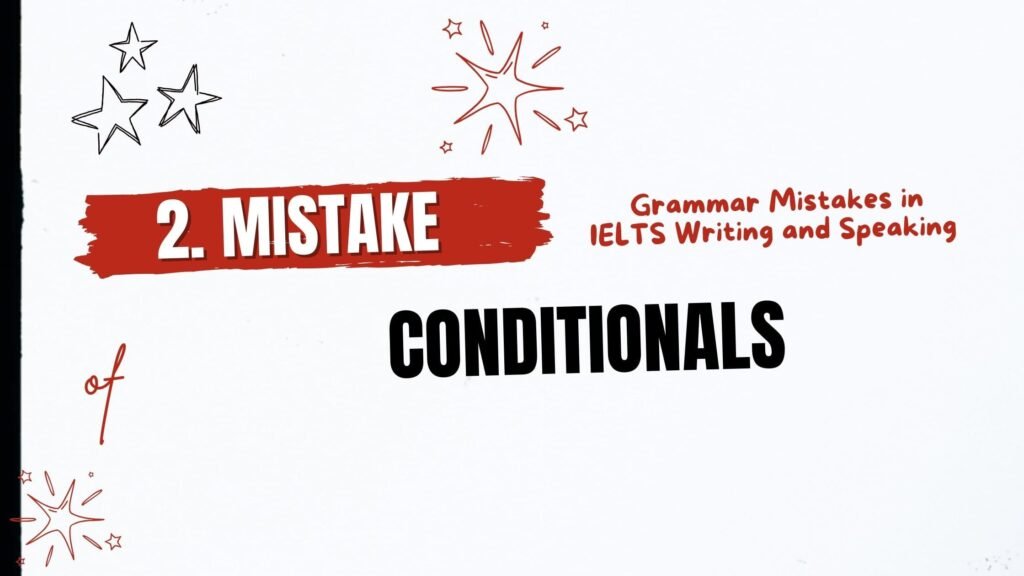
Have a look at this sentence. Is it correct? “If climate change will continue, some countries will disappear.” What do you think?

The answer is no; it’s not. Here is the correct sentence: If climate change continues, some countries will disappear.

Explanation: The part of the sentence starting with “if,” if climate change continues, is a condition for the things in the main clause to happen; some countries will disappear.
How you use it: If present simple for the condition, common future simple for the main clause. We may rewrite the sentence like this: “Some countries will disappear if climate change continues.”
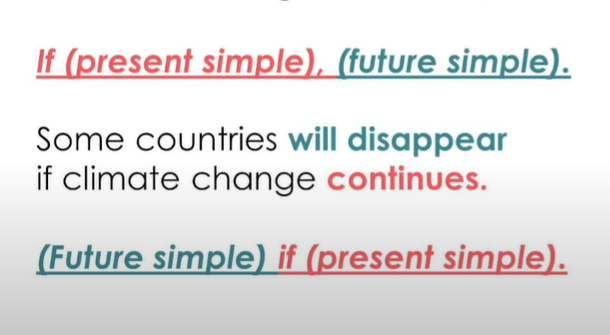
It means we have the future simple for the main clause, “if the present simple for the condition.”
Have you noticed how I used commas in those two examples of the rules?
If the sentence starts with “if,” so the condition is at the beginning of the sentence, then put a comma after the condition. If the sentence starts from the main clause and the condition isl at the end of the sentence, then no comma is required, like in the second example.
Here is another example: If sea levels continue to rise, floods might become more common.

Here we have “might” instead of “will.” Floods might become more common. “Might” in this type of sentence indicates probability. We don’t know for sure if floods will become more common, but they might.
Here are all the common tropes you could use in this type of sentence: will, should, would, can, could, may, might.

Imagaining Situation: When you’re imagining the situation, it’s a different type of conditional. If you won a lottery, what would you do? Probably, you haven’t won a lottery, have you?

So imagine a situation in this type of sentence, use the past simple tense in the conditional clause, and then should, would, might, could, plus your verb in the main clause.

Here is an example: If diesel cars were banned from city centers, improvements in air quality could be immediate. [Common Grammar Mistakes in IELTS Writing and Speaking]
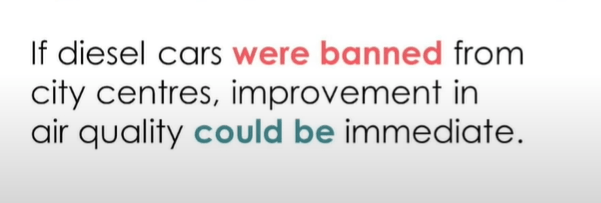
Mistake 3: Subject-Verb Agreement
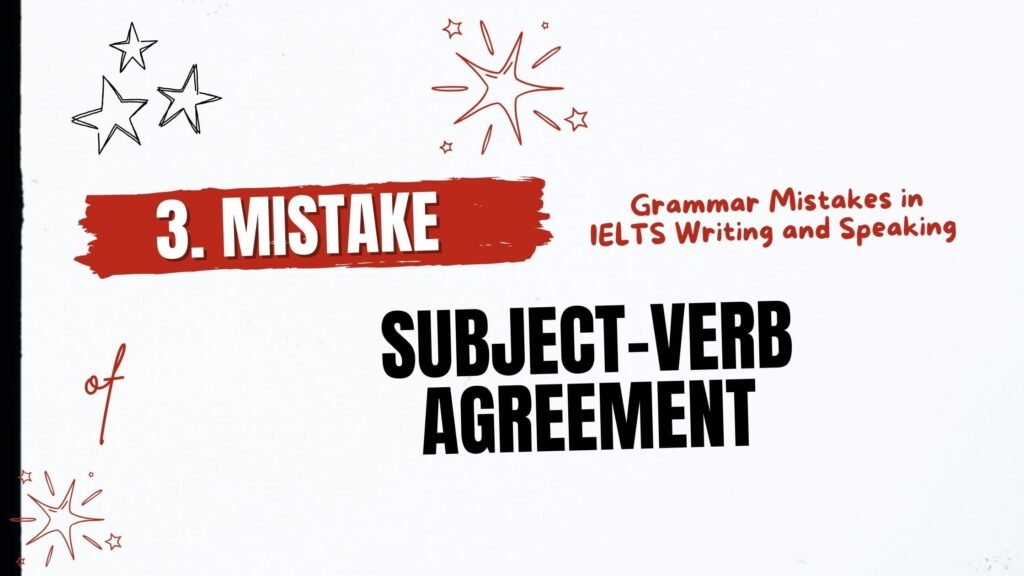
- Simple English Grammar Rule
Here are simple examples: “The company rents an office.” The company doesn’t travel office. The company’s current offices. There are four companies renting offices in this building. There is only one company on the top floor.
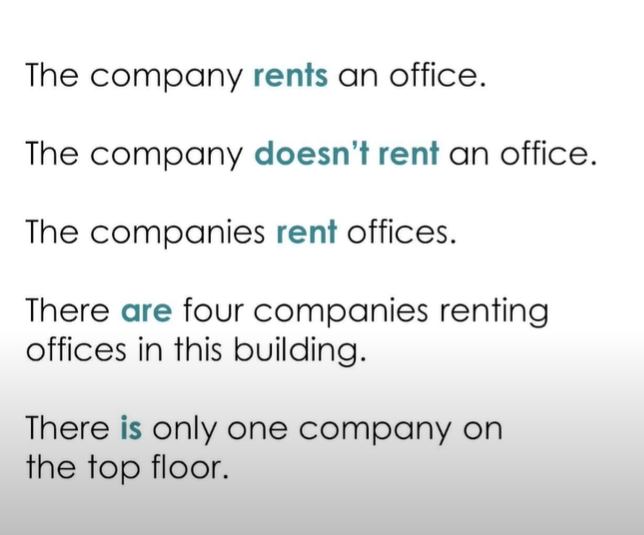
in all these sentences, the form of the verb depends on the subject and whether the subject is singular or plural. I’m sure you know those rules very well, but many mistakes in IELTS writing are basic. That’s why it’s so important to finish writing your essays a couple of minutes before your time is up and check them for such silly errors.
- Advanced English Grammar rule
Now let’s look into more advanced rules. Football and basketball are the two most popular sports in the world.

The subject is football and basketball, so two nouns are connected with “and,” and in this case, the verb is plural. Football and basketball are.
Let’s talk about pronouns. Have a look at this example: “There are two possible solutions; each to have its benefits and drawbacks.

“So what form of the verb would you use here?
Answer: Each has its benefits and drawbacks.

Another example: What about this one? Neither of them to be perfect.

What is the answer? “Neither of them is perfect.”

Here is a list of pronouns that take a singular verb: each, either, neither, one, no one, nobody, nothing, anyone, anybody, anything, someone, somebody, something, everyone, everybody, everything. [Common Grammar Mistakes in IELTS Writing and Speaking]
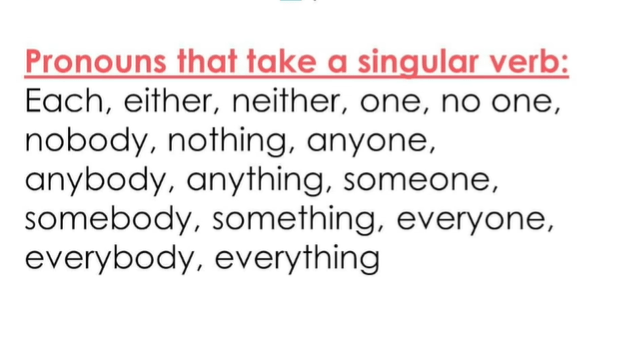
Some pronouns always take a plural verb, such as both, few, many, and several.

There are two possible solutions; both have benefits and drawbacks.

Compare it with: the previous example. Each has its benefits and drawbacks.

You see, both have, but each has other pronouns can be singular or plural.
Pronouns that take a singular or plural verb: Those are some, all, any, most, a lot.

Look at the noun after to decide:
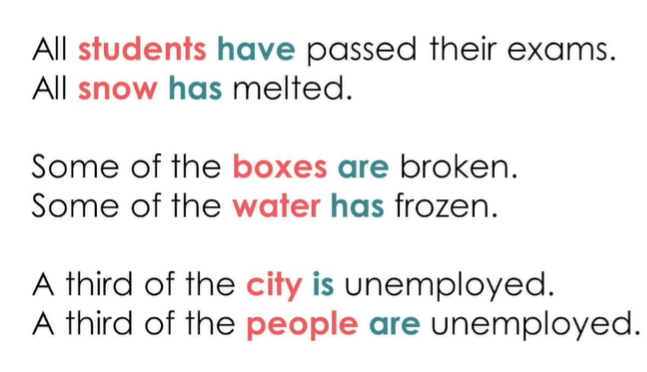
- All students have passed their exams. Students are plural.
- Snow has melted. Snow is uncountable.
- Some of the boxes are broken. Boxes are plural.
- Some of the water has frozen. Water is uncountable.
- A third of the city is unemployed. City is singular. A third of the people are unemployed. People are plural. [Common Grammar Mistakes in IELTS Writing and Speaking]
Students Also Read: 9 Common Mistakes in IELTS Speaking Test | Avoid These Mistakes
Mistake 4: Word Order
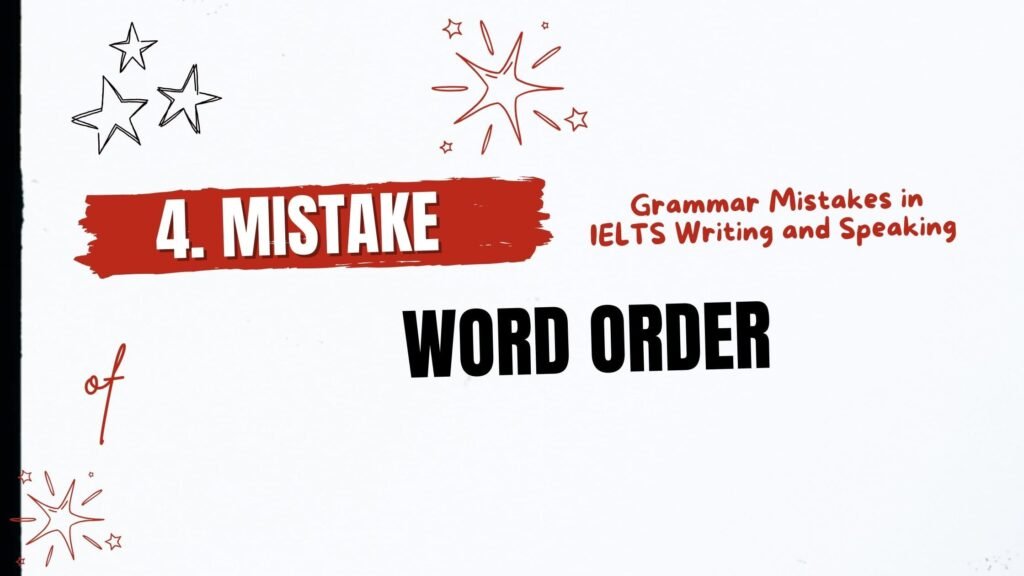
In English, we use auxiliary verbs to have, to do, to be, to form different tenses and to ask questions, right? Those are called auxiliary verbs:

I want to draw your attention to the placement of those auxiliary verbs in a sentence.
Here is the example one: Technology has reshaped our lives.” The auxiliary verb “has” goes after the subject “technology” and before the main verb “changed.”
Example two: “How has technology changed our lives? How has technology changed our lives?” In questions, the auxiliary verb comes before the subject, while the main verb comes after the subject.

What about this sentence: “Can you tell me how technology shaped your life?” Where would you put the auxiliary verb “to have” before the subject or after the subject?

The answer is after the subject:

Can you tell me how technology has reshaped your life?” Even though it’s a question, the question is only asked in the first part of the sentence, “Can you tell me?”

That’s where the question is. The rest of the sentence is positive, and then the auxiliary verb goes after the subject.

Mistake 5: Articles
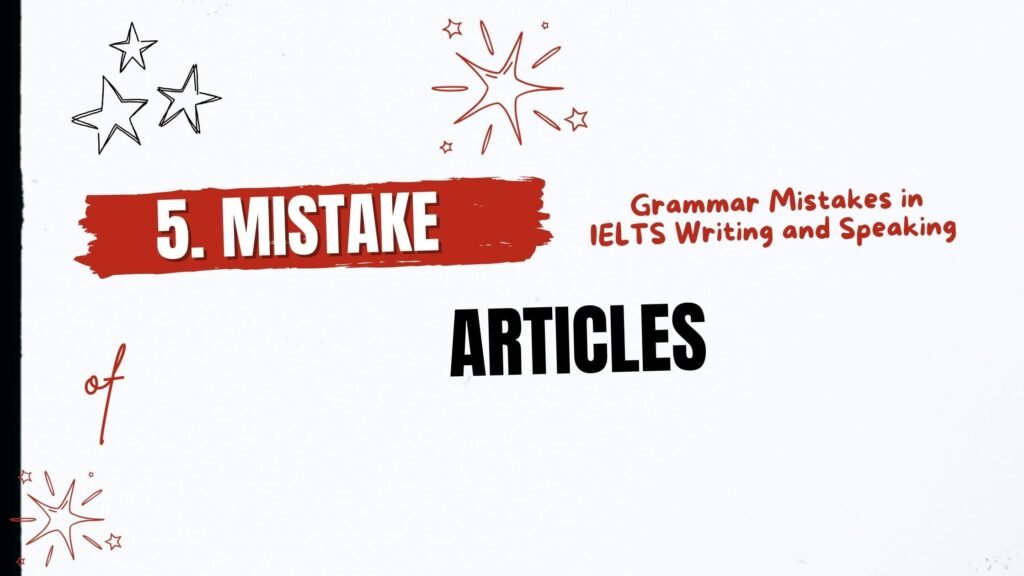
Incorrect articles. In my opinion, it’s the most common mistake in IELTS writing. I can say that I’ve never, ever checked an essay without missing articles. I can say more; I still miss articles myself if I don’t pay attention. It’s just so easy to do.
1. Articles with Countable Nouns
The rules: If you have a singular noun that you can count, it must have “a” or “an” to go in front of it. It’s either “a table” or “the table”; it can’t be simply “table.” Try checking essays you’ve already written for missing articles; I bet you will find a few. How can you determine if you should use an article “a” or “an”?I t depends on the first sound in the next word. Note the letter but the sound.
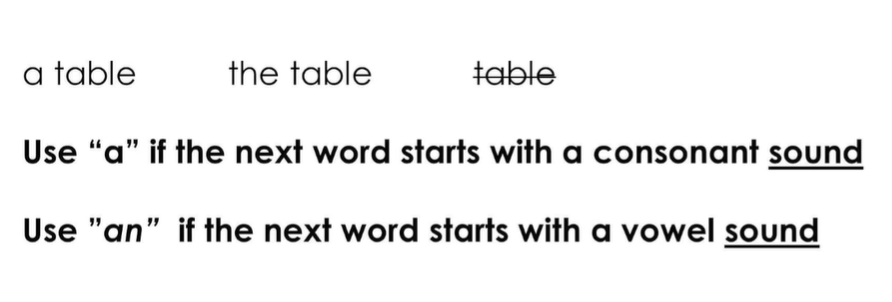
If the sound is a consonant, use “a”; if the sound is a vowel, use “an.” Let me show you a few examples. You really need to know how the word is pronounced, not how the word is written. “I will be an hour,” “a university,” “an umbrella,” “an honest man,” “a 20-year-old actress.”

If you’re unsure whether you should use “a” or “an,” read the phrase aloud. It’s much easier to decide this way.
2. Articles with Uncountable Nouns
Uncountable nouns, as we’ve just discussed, if we have a countable noun, which is singular, it has to have an article in front of it. But in English, there are quite a few uncountable nouns, those which can’t be counted, such as music, power, or happiness. We don’t use an indefinite article in front of them.
For instance, “Music is the food of the soul,” no article. “The music is beautiful,” the definite article. Let’s listen to some music now.

I’m going to give you some common nouns that cause a lot of mistakes because they are uncountable singular nouns.
- The first one is “advice.” What is your advice? Could you give me some advice? Here is my piece of advice. That’s good advice. You can’t say “an advice,” and you can’t say “advices”; that would be wrong.
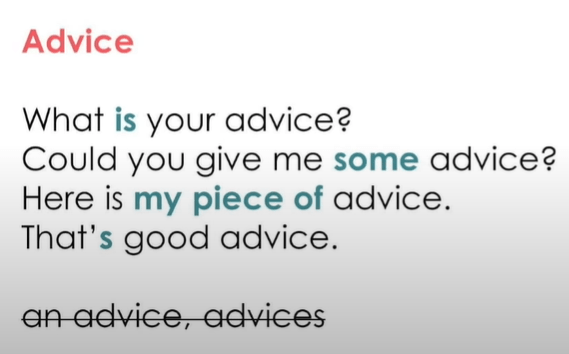
- The next one is “information.” “Information is power.” I need some information. This information is confidential.
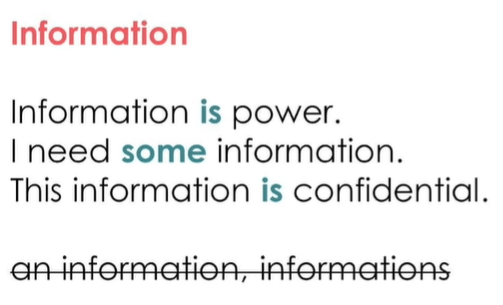
- The next one is “news.” “What is the latest news?” The news was upsetting. That’s a great bit of news.
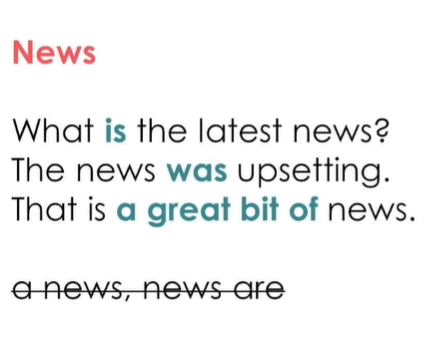
- “Money,” where is the money? “I don’t need any money.” I need some money.
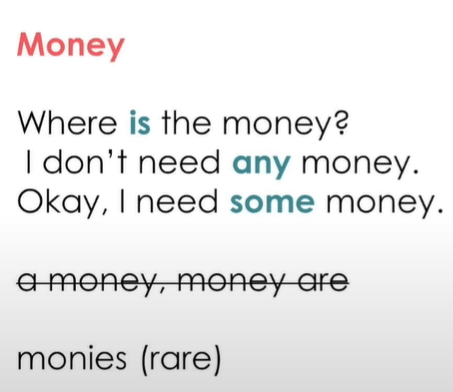
- “Luggage.” When you arrive at the airport, you may be asked, “Do you have any luggage?” And you answer like, “I have two suitcases,” or “I have two pieces of luggage.” But you can’t say, “I have two luggages”; that would be wrong.
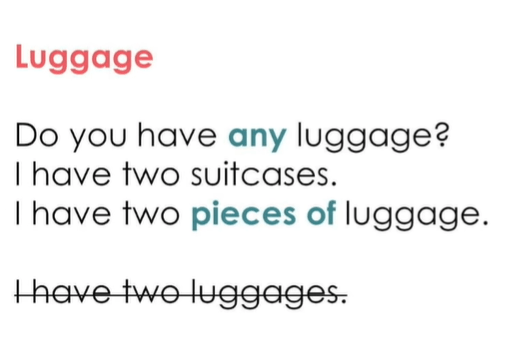
3. Articles with Countable Nouns and Uncountable Nouns
Let’s dig even deeper. Some nouns in English can be countable or uncountable depending on the situation and how you use them. That was a big revelation for me because I remember seeing such a noun and thinking, “Well, I just saw that noun over there without any article, and now there is an article here. How can it be?” So apparently, it’s possible in English.
Here is the classical example: “My hair is dark brown.” So, “My hair is uncountable,” but there are two hairs in my field. I went to a desert for free. That’s something you could say in a restaurant. [Common Grammar Mistakes in IELTS Writing and Speaking]
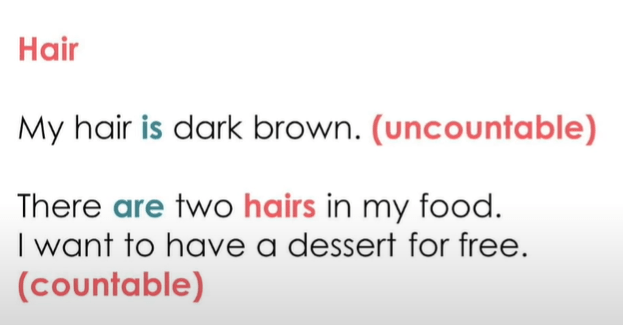
And now the similar noun is “success.” Compare these two sentences: “The presentation was a success.” Success is over the result of hard work. I used an indefinite article in the first sentence, but not in the second. Do you know why?
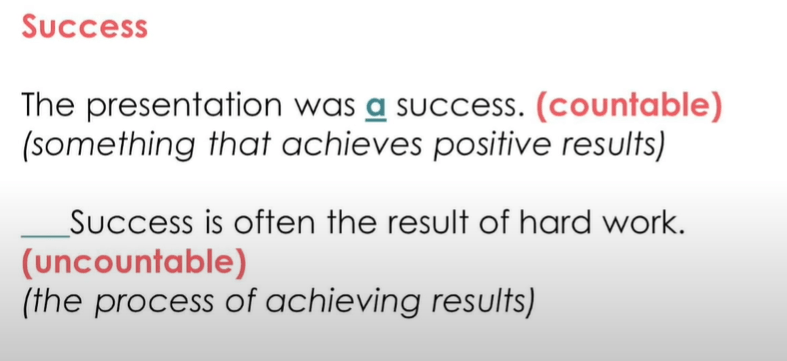
Because in the first sentence, we talked about success as something that achieves positive results, and then it’s countable. And in the second sentence, we talk about success as the process of achieving results, and then it’s uncountable.
What I do when I’m not certain is I open the dictionary and check. You can either use the Oxford dictionary or the Cambridge dictionary. It doesn’t matter; both are online, both are free. You find your noun, you find the meaning you want to use this word in, and then you check if, in this meaning, it’s countable or uncountable.
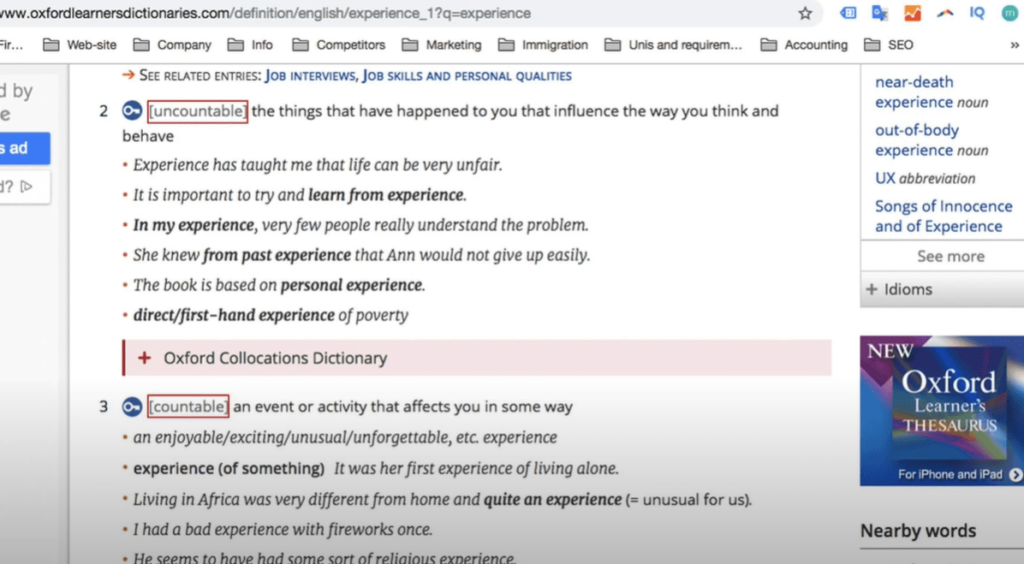
And if it’s gonna make you feel any better, with time, you’re also gonna develop a sense of how to use each word.
Conclusion
Your grammar is important because 25% of your IELTS writing and speaking scores depend on your grammar. The good news is you’re still allowed to make some mistakes, few mistakes. And if you’ve learned something new today, it means you’re already one step closer to passing your exam. In this video, I wanted to draw your attention to five of the most common mistakes in IELTS writing and speaking: past simple or present perfect, conditionals, subject-verb agreement, word order, and articles. Remember, practice makes perfect. Good luck with your preparation. Good luck with your exam. [Common Grammar Mistakes in IELTS Writing and Speaking]
Students Also Read: Best Way to Improve IELTS Speaking Score | 7 Tips and Tricks